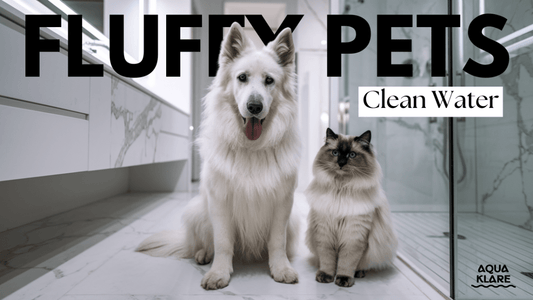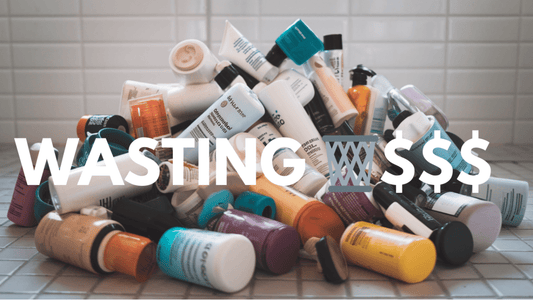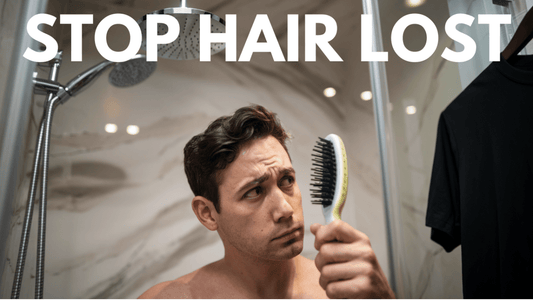Hard water is a silent saboteur of your beauty routine. Rich in minerals like calcium and magnesium, it may seem harmless, but its effects on your skin and hair can be devastating. From dryness to breakage, understanding the impact of hard water is crucial for maintaining a healthy complexion and luscious locks.
What is Hard Water?
Hard water is water that contains a high concentration of dissolved minerals, particularly calcium and magnesium. These minerals accumulate as water flows through soil and rock, especially in regions with limestone or chalk. While not harmful to your overall health, hard water can wreak havoc on your skin and hair, leaving them dry, dull, and damaged.
Cities with Hard Water Around the World:
Water hardness varies significantly depending on geographic location, and certain cities are particularly notorious for having very hard water. Here's a look at some cities around the world where residents and visitors often experience the effects of hard water:
| Country | City | Water Hardness (mg/L) | Water Hardness Classification | Notable Characteristics |
|---|---|---|---|---|
| United States | Las Vegas, Nevada | 275 - 300 mg/L | Very Hard | Extremely hard water with high levels of calcium and magnesium. |
| United States | Indianapolis, Indiana | 170 - 200 mg/L | Hard to Very Hard | Known for particularly hard water, affecting residents’ skin and hair. |
| Germany | Munich | 180 - 300 mg/L | Hard to Very Hard | High water hardness due to the surrounding limestone geology. |
| Germany | Berlin | 150 - 250 mg/L | Hard | Significant water hardness, though less severe than Munich. |
| France | Paris | 200 - 300 mg/L | Hard to Very Hard | Hard water from the chalky soil of the Île-de-France region. |
| Italy | Rome | 170 - 250 mg/L | Hard to Very Hard | Water with high mineral content, largely due to the limestone in the area. |
| Portugal | Lisbon | 100 - 250 mg/L | Moderately Hard to Hard | Notably hard water, especially in coastal areas. |
| Greece | Crete | 250 - 350 mg/L | Very Hard | Some of the hardest water in Greece, affecting both locals and tourists. |
| Spain | Palma de Mallorca | 200 - 350 mg/L | Hard to Very Hard | Extremely hard water in the Balearic Islands, leading to dryness and irritation. |
How Water Hardness is Measured:
Water hardness is typically measured by the concentration of calcium carbonate (CaCO₃) in water. This concentration is expressed in milligrams per liter (mg/L) or parts per million (ppm). The higher the concentration, the harder the water. Water hardness is categorized into four main levels:
- Soft: 0 - 60 mg/L (0 - 3.5 grains per gallon, gpg)
- Moderately Hard: 61 - 120 mg/L (3.6 - 7 gpg)
- Hard: 121 - 180 mg/L (7.1 - 10.5 gpg)
- Very Hard: >180 mg/L (>10.5 gpg)
How Hard Water Affects Skin:
- Dryness and Irritation: The minerals in hard water can strip your skin of its natural oils, leading to dryness, irritation, and exacerbation of conditions like eczema and acne.
- Soap Scum Build-up: Hard water reacts with soap to create a scum that clogs pores and sticks to your skin, making it difficult to rinse off, leaving your skin feeling sticky and irritated.
- Accelerated Aging: The minerals in hard water can degrade collagen, a vital protein for keeping your skin firm and youthful. Over time, this can lead to premature aging, with your skin appearing dull and wrinkled.
How Hard Water Affects Hair:
- Mineral Buildup: Hard water leaves mineral deposits on your hair, making it feel heavy, dull, and more prone to breakage. This buildup can also make hair appear lifeless and flat.
- Faded Color: Hard water can cause hair color to fade faster, stripping away the vibrancy of your color treatments.
- Scalp Issues: The mineral residue can also affect your scalp, leading to dryness, flakiness, and irritation, worsening conditions like dandruff.
Solutions to Combat Hard Water Damage:
- Install a Water Softener: A water softener is the most effective way to remove minerals from your water, protecting your skin and hair.
- Use a Shower Filter: Filters designed to remove calcium and magnesium can significantly reduce the effects of hard water.
- Choose the Right Products: Use gentle, sulfate-free cleansers and shampoos, and consider rinsing your hair with filtered water.
- Use High-End Products: Brands like La Mer and Oribe offer luxurious skincare and haircare products specifically formulated to combat the effects of hard water.
Conclusion:
Hard water might be a common issue, but its impact on your beauty routine shouldn’t be overlooked. By taking proactive steps, such as installing a water softener or using targeted skincare products, you can protect your skin and hair from the hidden damage caused by hard water.
Sources:
- "The Effects of Hard Water on Skin and Hair," Journal of Dermatological Science.
- "How Hard Water Damages Your Skin and Hair," Skincare.org.
- "Hard Water and Its Impact on Hair," Trichology Research Institute.






